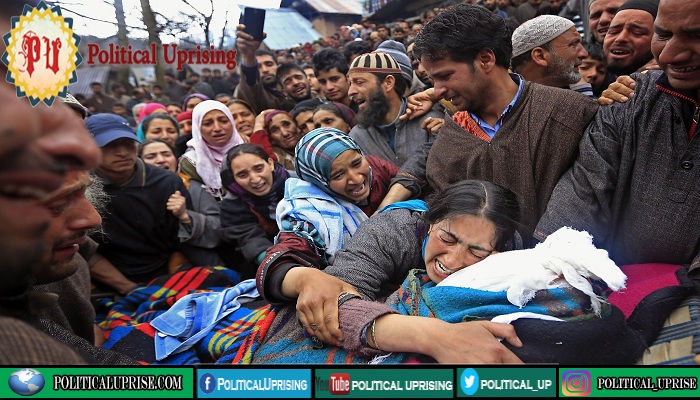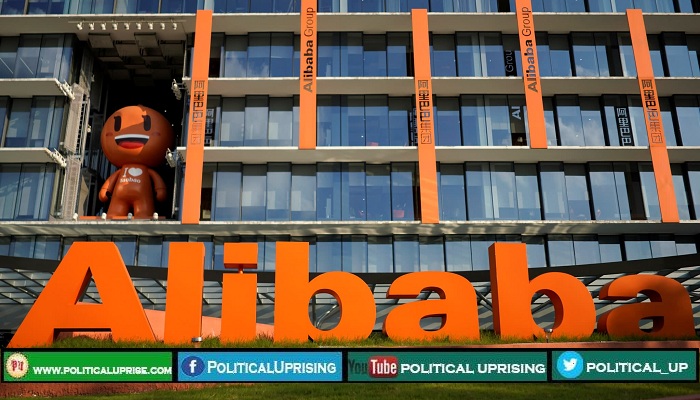Survey says more than 90 percent of college and university students want a complete withdrawal of Indian forces from the Indian-administered Kashmir.
Survey appears to challenge India’s claim that revocation of Kashmir’s autonomy will resolve decades-old conflict.
Approximately 600 college and university students were part of the survey conducted by researchers from a university in Kashmir and New York’s Skidmore College in the wake of New Delhi’s decision to revoke the Muslim-majority region’s special status last August.
Fearing a backlash to the revocation, India rushed tens of thousands of additional troops to the region in addition to the more than 500,000 soldiers already stationed there and suspended internet, which was fully restored earlier this month.
Indian forces have been battling separatists fighting for Kashmir’s independence or merger with neighbouring Pakistan, which also lays claim to the Himalayan territory,for 30 years.
New Delhi says the military has been deployed to quell the armed rebellion that erupted in 1989.Kashmir is dubbed the most militarised region in the world.
Kashmir got attention of French parliament
Rights organisations, as well as the United Nations, have accused Indian forces of carrying out systematic human rights violations against the people of Kashmir, including widespread killings, torture, rape, and enforced disappearances.
According to the survey, which was conducted between October and December 2019, 91 percent of the respondents wanted a complete withdrawal of Indian forces from the region.
The same percentage backed the holding of a referendum to decide the future status of the Muslim-majority region, the survey, published in The Washington Post last week,said.
While New Delhi maintains that the region is an integral part of the country, conducting a plebiscite that lets Kashmiris choose to accede to either India or Pakistan has been a long-standing demand of Kashmiris who, for the most part, consider India an occupying power.
Many who would like to see the region remain independent of both nations believe that the plebiscite, in its current form, might not adequately address popular aspirations.
In 1953, India’s first Prime Minister Jawaharlal Nehru promised to conduct a plebiscite in Kashmir to resolve the conflict, but it was never implemented.
Protests erupted in New Delhi as Trump visit India
“Other than being an inherent right, Kashmiri nationalism has a history older than both Indian and Pakistani nation-states,” Haroon Rashid, a research scholar based in India,said. “A Kashmir, free of both the nations, will cease to be a nuclear flashpoint in South Asia,” he added.
On the question of seeking Pakistan’s support in the potential resolution of the conflict, 64 percent participants responded positively, while 79 percent said they would like Western mediators to consider Kashmiris a central party in any negotiations.
The survey results appear to contradict the Hindu nationalist government’s claim that by revoking Article 370 which granted limited autonomy to Kashmir it would be able to bring the decades-long conflict to an end by fully integrating Kashmir into India.
“Based on the responses [in the survey], I think it’s safe to assume that many among the Kashmiri youth would prefer at least some autonomy,” Yelena Biberman, an assistant professor of political science at Skidmore College and study co-author said.
But Professor Sreeram Chaulia, dean of Jindal School of Global Affairs, said it was “too soon” to gauge the opinion of Kashmiris on the effects of Indian move in Kashmir.
“It has only been seven months since the revocation of autonomy, and we will, at least, have to wait for five to 10 years to survey the nature of popular perceptions regarding this move,” he said.
India’s citizenship law challenged in Supreme court
When asked about the representative nature of the survey, Biberman maintained that she found it characteristic of the opinion within the university and college students of Kashmir.
The survey was conducted in Srinagar, the main city in Kashmir.The current number of university and college students is not available, but it is estimated to run into thousands.
Chaulia said the sample size of nearly 600 students out of a population of seven million was not representative. He did not elaborate.
Biberman defended the research methodology. “Our methods successfully went through an IRB [Institutional Review Board] process at Skidmore College,” she said.
The IRB reviews all research involving human subjects and includes ethical, institutional, legal, scientific and social implications of a research project.
US President Donald Trump, who has dubbed Kashmir “a big problem between India and Pakistan” has offered several times to mediate on the issue. But New Delhi, which considers it a bilateral issue, has baulked at the idea of third-party involvement.
The dispute between New Delhi and Islamabad over control of the Muslim-majority region stretches back to the partition of the Indian subcontinent following independence from the British rule in 1947.
According to Hafsa Kanjwal, an assistant professor of history at Pennsylvania’s Lafayette College in the US, Kashmiris feel that the framing of this dispute as bilateral has not helped.
Indian Supreme court rejects final death penalty plea in 2012 rape
“Given the restrictions and level of repression that exists in Indian-administered Kashmir, it is hard to gauge the extent to which Kashmiris are pro-Pakistan or purely nationalist,” Hafsa added.
“I also feel that these two categories continue to be pitted against each other and, ultimately, it only ends up helping the Indian narrative.”
Interestingly, the so-called “four-point formula” for resolution of the dispute in Kashmir, deemed a brainchild of former Pakistani President Pervez Musharraf, remains popular with the young Kashmiri respondents to the study.
The “four-point formula” advocates for greater regional autonomy, demilitarisation and free movement of people and goods across the Line of Control the de facto border that divides Indian and Pakistan-administered Kashmir and a joint India-Pakistan mechanism for governance.
However, Kanjwal from Lafayette College believes this can be seen as a desperate, short-term response towards India’s unwillingness to engage with the core political issue in the region.
While relations between Islamabad and New Delhi are at a historical low, especially since India’s moves in Kashmir last year, survey respondents were generally hopeful about sustainable peace in the region.
Controversial bill Sparks Panic and Protests in India
Although many, including Samir Ahmad, who was part of the team that conducted this survey, do not feel there is the will to find a lasting resolution.
“Given the lack of political will within India, it seems, that the conflict is not going to be resolved in near future,” he said.



